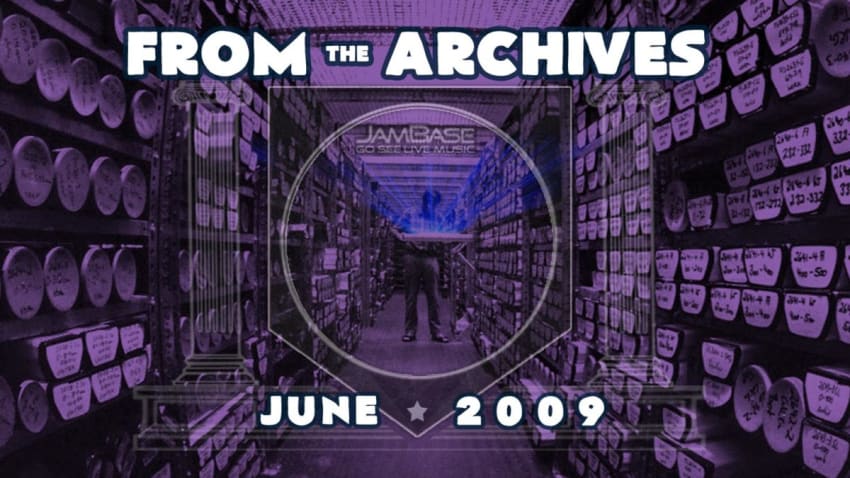Branford Marsalis | 05.09.09 | NYC
By Team JamBase Jun 12, 2009 • 5:29 am PDT

Branford Marsalis Quartet :: 05.09.09 :: The Jazz Standard :: New York, NY
 |
After I finished what were probably the most expensive chicken wings I’ve ever eaten, Marsalis started us off with Irving Berlin’s “Cheek to Cheek,” a prime example of the influences on Marsalis’ work. This rendition was an ingenious rearrangement, taking a cheery show tune classic and turning it into a jazz masterpiece. The quartet quickly dissolved the song’s main theme, diving into a foray of free form jazz. Drummer Justin Faulkner‘s hands became a blur of probability. The intricacies of free jazz drumming have always intrigued me. While a clear sense of meter could be heard, there is no repeated beat as there often is in other types of contemporary music. Faulkner’s chaotically improvised drumming, with abundant complex and irregular rhythms thrown in, was a nice compliment to Marsalis’ free form saxophone solo, which shot up chromatically into the stratosphere than cascaded down in a similar fashion.
The band effortlessly slid back and forth between unstructured jams, where each musician appeared to be in their own world, and tighter jams, where the musicians were keenly locked into one another. The hectic free form jamming gave way to the rapidly changing harmonies of post-bop over which Marsalis’ solos were much more melodious. Giving his lungs a rest, Marsalis watched quietly as Eric Revis took a savory bass solo, his eyes gazing off in the distance, completely unaware of his surroundings. Meanwhile Faulkner and Joey Calderazzo (piano) were intently communicating with one another on some higher wavelength, picking up on subtle cues in the other’s rhythmic patterns, fusing their playing together into a single entity.
 |
Marsalis once more took the lead. Each note he played seemed to hang in the air for an eternity, subsequently piercing through each listener’s heart. The very sound of his soprano sax became a window into Marsalis’ soul, sharing with the audience the very essence of his being. Moving from a soft, somber ambience to a turbulent frenzy, Marsalis’ solo mimicked the nature of emotion itself. Though Marsalis’ music can be closely identified with movements of the past, his saxophone playing is still highly idiosyncratic.
In this ephemeral age of Blackberries, iPhones and high-speed Internet, everything always seems to be moving a mile a minute. And music is no exception. While progress is generally a good thing in any field, every now and again we need someone to remind us of the past. In the world of jazz that someone is Branford Marsalis. Thanks to him and his brothers one of the finest eras in the genre has been preserved. What Branford does, however, is more than just reproduce sounds of the past. By adding his own creations in this style, he effectively brings this erstwhile music into the 21st century, not only preserving a snapshot of the past but also keeping this music alive and ever growing.
JamBase | Manhattan
Go See Live Music!
